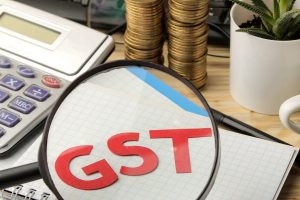
The CBIC issued Guidelines vide Instruction No. 01/2024-GST dated 30.05.2024, regarding the initiation of recovery proceedings under the Central Goods and Services Tax Act, 2017 (CGST Act) before the standard three-month period from the date of service of a demand order.
The CBIC has clarified that recovery proceedings should generally be initiated after three months from the date of service of the demand order. However, in specific cases where revenue is at risk, and with proper justification and approval, recovery can be initiated earlier. This instruction ensures uniformity and fair implementation across field formations, balancing revenue interests with the business environment.
Guidelines summarized as under:
Demand and Recovery Proceedings u/s 78 and 79 of the CGST Act, 2017: As per the provisions of Section 78 and 79 of the CGST Act, 2017, a taxable person must pay any amount due within three months from the date of service of the order. Exceptionally, if deemed necessary in the interest of revenue, the proper officer may require payment within a shorter period, provided reasons are recorded in writing. The proper officer can initiate recovery using the specified modes, if the amount is not paid by the due date.
General Rule for Recovery :_Thus, Recovery proceedings should typically start only after the expiry of the three-month period from the date of service of the order.
Exception for Early Recovery:
1. If it is in the interest of revenue, the proper officer can initiate recovery before the three-month period, This requires approval from the jurisdictional Principal Commissioner/Commissioner of Central Tax. Generally, while recovery proceedings under sub-section (1) of section 79 of CGST Act are required to be undertaken by the jurisdictional Deputy or Assistant Commissioner of Central Tax.
2. The jurisdictional Deputy or Assistant Commissioner must present the case to the Jurisdictional Principal Commissioner/Commissioner with the reasons/justification for reasons/ justification for such an early recovery action.
3. The Principal Commissioner/Commissioner after examining the reasons/ justifications, must record the reasons in writing if they agree with the early recovery.
4. The jurisdictional Principal Commissioner/Commissioner should provide the specific reason(s) for early payment of the said amount, clearly outlining the circumstances prompting such early action. Specific reasons for early payment include high risk to revenue, potential closure of business, financial instability of the taxpayer, or potential initiation of insolvency proceedings.
5. Reasons for early recovery must be backed by credible evidence and documented thoroughly.
6. The decision must balance the interest of revenue and the ease of doing business and should not be issued mechanically.
7. While issuing any such directions, the financial health and business status of the taxpayer must be considered to ensure a fair balance between revenue interests and business operations.
8. In last, wherever such directions are issued by the jurisdictional Principal Commissioner/ Commissioner of Central Tax under the proviso to Section 78 to demand early payment in the interest of revenue, upon failure to pay within the specified early period by the taxable person, the jurisdictional Deputy or Assistant Commissioner shall proceeds with recovery as per Section 79 of the Act.
The Complete Instruction can be accessed at https://taxo.online/wp-content/uploads/2024/06/ins-gst-no-01-2024.pdf


